17 Jan Types of signatures and when to use them
Signatures have been used for thousands of years as a method of proving identity and intent for one or more parties. Although the usage of signatures has not changed drastically over history, the way that individuals provide their signature has. Due to advancements in digital technology, many businesses now rely on an eSignature solution for contracts and documents. The rise of remote and hybrid working has only increased the uptake of eSignature solutions as now, more than ever, companies must be able to conduct business from anywhere, on any device.
Although eSignatures have become commonplace, many businesses may not realise that a comprehensive eSignature solution allows for multiple types of signatures, for different use cases. In this article we will discuss when and why to use different types of signatures.
Wet Signatures
A wet signature is when a person uses a pen to sign their name on a physical paper document. Prior to the widespread adoption of eSignatures, this was how all documents were signed. Most documents can still be legally signed with a wet signature. However, there are many downsides to using a wet signature, such as increased turnaround time, increased cost per document and they are not as secure as eSignatures.
What is a Digital Signature?
The term electronic signature or eSignature is a category of methods for signing a document. One of the methods within this category is a digital signature. A digital signature must comply with strict legal regulations to be court admissible. The act of signing a digital signature is a recorded transaction and uses a Public Key Infrastructure (PKI) for a higher level of security and compliance. The technology to create a digital signature is complex, but thankfully there are software solutions that make this much easier.
Simple Electronic Signatures (SES)
An SES is the most basic electronic signature available for use. It does not require overly complex signer authentication or ID verification. Although this is the simplest form of eSignature, it is still secure, and legally irrefutable. For documents that use this form of signature, businesses only require the signer’s email address, or that they received a unique access code before signing. Businesses should use SES for lower value agreements, such as sales order forms, and procurement agreements.
Advanced Electronic Signatures (AES)
AES is a more secure form of signature, in comparison to SES. These signatures require additional user authentication steps, this typically includes the signer having to produce a valid document to confirm their identity, and a unique access code to initiate the signing process. These advanced signatures also require a digital certification to be created and attached to the document as part of the process.
As these signatures identify the signer and establish a unique link between the signature and the signer, they are typically used for higher value transactions, or when businesses need to meet stricter compliance regulations. An example of when AES should be used is when a HR department is hiring a new employee. The new hire will receive an email with the form that needs signing, as well as a code via text to initiate the process. When the employee is signing the document, they will need to prove their identity by uploading an image of their ID. Once the document is signed, the HR department receives the signed document and proof of authentication. Advanced electronic signatures are also legally irrefutable.
Qualified Electronic Signatures (QES)
A QES has the highest level of security of all signatures and requires a face-to-face identification process by a Qualified Trust Service Provider. The resulting digital certificate is then created with an electronic signature device. The QES process ensures the unquestionable validity of the signature process. It is typically only used in industries with strict compliance regulations.
Want to find out more?
eSignatures can be used in most businesses and there is type of eSignature for all documents. If you want to find out more about how your business could benefit from an eSignature solution, contact us today.
 Remote Support
Remote Support

